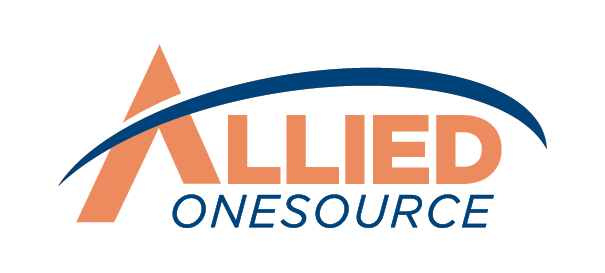Top HR Generalist Interview Questions and Sample Answers
Getting a job as an HR generalist isn't easy nowadays. The United States (U.S) Bureau of Labor Statistics (BLS) predicts a 5 percent growth rate for HR generalist jobs through 2024.¹ This shows a steady need for human resource workers, which means stiff competition. With so many applicants, standing out is more crucial.
The interview stage is where human resources generalists show what they can do. Doing well in the interview is more than just a plus; it's what really decides whether you get the job. We've prepared some practice questions to help you secure that human resources generalist role.
Why prepare for an interview?
Being ready for an interview can help you feel less stressed and show off your unique and useful skills. Employers often recommend using the MIT Career Advising and Professional Development (CAPD) STAR worksheet to prepare for HR Generalist interviews.²
The STAR method, or Situation, Task, Action, and Result, helps you organize your answers. It allows you to demonstrate specific skills and achievements clearly and concisely. This technique also helps you stay on topic with your answer, so you don't ramble or change the subject.
The STAR method works by giving an example of a situation, the assigned task, your actions, and the results you got. Here are common questions interviewers often ask for a human resources role and how to use the STAR method to answer them.
Read More: 5 Ways to Separate Yourself from Other Candidates
Top Interview Questions for HR Generalists
Interviewers test your experience and approach in different scenarios. But these are some questions you'll probably be asked:
Why do you want to become an HR generalist?
The employer wants to know your career goals, what drives you, and how your interests fit the HR generalist role. This is what a good answer would cover:
- Passion for People: You enjoy helping others, building relationships, and fostering a positive work environment.
- Strategic Impact: You're interested in the HR role's strategic impact on company culture, talent acquisition, and employee development.
- Learning & Growth: You're drawn to various tasks, continuous learning opportunities, and the chance to grow within human resource management.
- Transferable Skills: Highlight relevant traits from previous roles (e.g., problem-solving, organizational, or communication skills) applicable to HR.
- Company Culture: Show that you're interested in the company's values and how HR helps to uphold them.
Be sure to tailor your answer to the specific company and the responsibilities mentioned in the job description.
What experience do you have as an HR generalist?
The recruiter wants to know your understanding of the job description. They also want to assess your understanding of core HR functions and your comfort level in handling different responsibilities.
Your answer should showcase your experience with hiring, training, project management, managing employee performance, and other tasks. Additionally, you should emphasize your knowledge of following HR laws and rules. Shortly describe any HR tools you use, like Seamless HR.
How do you communicate complex HR information to employees?
The HR manager wants to know if you can convey intricate HR concepts to employees, such as benefits administration and the company's healthcare benefits. Employee relations is all about people management, so they test your interpersonal skills, and social and emotional intelligence.
Here's how you could use the STAR method:
- Situation: In my previous HR generalist role.
- Task: I needed to communicate changes to our company's healthcare benefits.
- Action: I held town hall meetings, used visual aids, and shared real-life examples.
- Result: Employees reported feeling informed and confident, leading to increased understanding and engagement with the changes. This experience showcased my ability to communicate complex HR information effectively.
Have you ever worked with people from other departments on an HR project?
Employers use this question to test your ability to work with different people. The interviewer wants to see your:
- Collaboration Skills: Can you work effectively with people from different backgrounds and communication styles?
- Teamwork Abilities: Do you understand how different departments contribute to HR initiatives?
- Problem-Solving Prowess: Can you navigate potential challenges that may arise from interdepartmental collaboration?
Use the STAR method to describe a brief collaboration with another department. In your answers, you should use words and phrases like teamwork, cross-functional communication, conflict resolution, compliance, and understanding different points of view.
Have you ever had to deal with a sensitive employee issue? How did you handle it?
Because HR Generalists deal with problems daily, interviewers will test your problem-solving ability and decision-making. They ask questions like this to see how discreet, empathetic, and effective you manage conflict and problems in different situations, including those related to performance management.
Your answer should help the interviewer see how you handle complicated interpersonal situations. You want to do the following:
- Situation: Briefly describe the issue (without revealing confidential details).
- Task: Highlight your steps to gather information, investigate, and seek solutions.
- Action: Show you listened to the employee's perspective and created a safe space for dialogue.
- Result: (if appropriate) Mention a positive outcome that respects company policy and employee well-being.
How do you stay informed about employment laws?
HR is always changing. Interviewers ask this to test compliance management. It also shows that you understand why HR professionals have to follow company rules and changes in HR law and updates in job descriptions.
You want to show that you are dedicated to learning new things and staying informed on your HR knowledge by listing the workshops, webinars, or professional organizations you have joined in the HR field.
How do you ensure a good employee experience in different roles?
Every business needs to find talented people to work for them. Interviewers want to test how well you can find different kinds of people to fill different roles.
Your response should demonstrate how to adapt, think strategically, and run multiple HR programs to find the best candidates for each job. You could say you focus on headhunting and networking for senior roles. For entry-level and mid-level jobs, use university career fairs and online job boards.
Read More: Winning Responses to the 10 Most Asked Interview Questions
How do you know if your campaigns to hire people are working?
Employers want to figure out if your hiring methods are good value for money, bring in quality candidates, and give you a good return on your investment.
For a great answer, you should talk about the specific tools or reports you use to keep track of some key hiring data. Such as the application-to-hire ratio, the time-to-hire, and the cost-per-hire. You should also talk about how you use data analysis and behavioral interviews to judge the quality of candidates, understand the culture of the company, and improve hiring efforts.
What methods do you use to ensure that new employees do well?
This interview question checks how you make the onboarding process for new employees go smoothly and aid employee success. You want to focus on the new employees' success. Your answer should include keywords like onboarding, training, mentorship, regular performance check-ins and feedback, and support systems.
Recall a time when you used data to help you hire someone.
The interviewer wants to know how you use statistics to sort through job applications and pick the best one. In addition to showing that you can make decisions based on facts, it will also show that you can communicate and solve problems.
For your answer, use the STAR method to give an instance where you used data in the hiring process. Here’s a breakdown of a STAR method answer:
- Situation: Briefly describe the hiring situation you faced. What role were you hiring for? What were the challenges?
- Task: Explain your specific responsibility in the hiring process. Were you responsible for screening resumes, conducting interviews, or analyzing data?
- Action: Detail how you used data to analyze the applicants. What metrics did you use? Did you identify any patterns or trends?
- Result: Describe the outcome of using data. Did it help you identify a top candidate? Did it improve the overall hiring process?
LAND YOUR DREAM HR GENERALIST JOB WITH ALLIED ONESOURCE
Answering common human resource generalist questions ensures you are thoroughly prepared for the interview process. But it doesn't end there. Take action now to get your dream human resources job at Allied OneSource. We're committed to assisting talented HR Generalists like you to find fulfilling employment.
Here's how you can take the next step: visit our job registration page to browse HR Specialist jobs that fit your goals and skills. Alternatively, you can set up custom job alerts to stay updated on new HR Generalist opportunities. For further assistance, don't hesitate to reach out to us.
References
- “Growth Rate for HR Management Jobs.” U.S. Bureau of Labor Statistics, U.S. Bureau of Labor Statistics,
www.bls.gov/ooh/. Accessed 29 Apr. 2024.
- "Interviewing and the Job Offer Behavioral Interviews - STAR Worksheet." MIT Career Advising and Professional Development (CAPD), cdn.uconnectlabs.com/wp-content/uploads/sites/123/2022/06/STAR-Method-Worksheet-1.pdf. Accessed 29 Apr. 2024.











